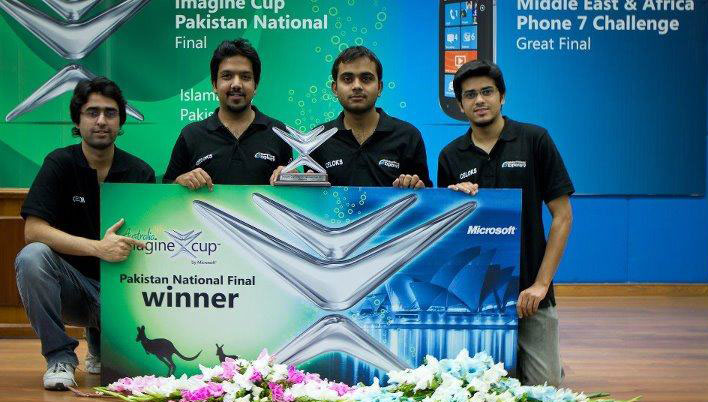Ever since the inception of National ICT Grassroots Research Initiative (NIGRI) in 2011, 72 public and private sector participating universities submitted 5,538 FYP proposals out of which 2,067 FYPs received an overall grant of worth PKR 130 million.
The financial assistance under this initiative of National ICT R&D Fund enables students of public and private sector universities, undertaking Final Year Projects (FYP), to build prototypes that demonstrate advances in technology and showcase creativity, innovation and hands-on engineering and development skills. Under Phase-II of this initiative, a national competition was announced in 2016.
National ICT R&D, for the first time, organized a competition of Final Year Projects at Islamabad. Diverse projects from all over the country were displayed owing to their innovation and commercialization potential. These projects were nominated by the participating universities and degree warding institutions.
National Champions – Power Watch Dog, with prize money of Rs 400,000, are Zain Qasir and Hamza from PNEC NUST for “Power Watch Dog,” which detects electricity theft through an IoT based sensor network. K Electric signed up
The First Runner Up – Smart Helmet, with a kitty of Rs 300,000, is Ali Gul from Balochistan University of Information Technology. Following a serious injury sustained by his brother in a mining accident, Ali turned to engineering with a resolve to make mining safer for often-illiterate miners. His Smart Helmet detects and monitors poisonous gases, temperature, humidity, location, and miner health profile, issuing warnings and alarms, and helping rescue and retrieval. While international smart miner helmets are designed for the educated, Ali helmet even caters to the illiterate. He has already sold 20
The Second Runners Up – Fully Automated Fire Tube Boiler, winning Rs 200,000, are Owais Ahmed and Hassan Cheema from the University of Faisalabad for their project that monitors and regulates industry boilers, by detecting variances in temperature, fluid levels and other parameters — generating alarms and taking automated remedial measures. Their innovation will save lives by reducing occurrences of one of the most common accidents on factory floors — boilers that blow up. First unit sold to a textile mill.




